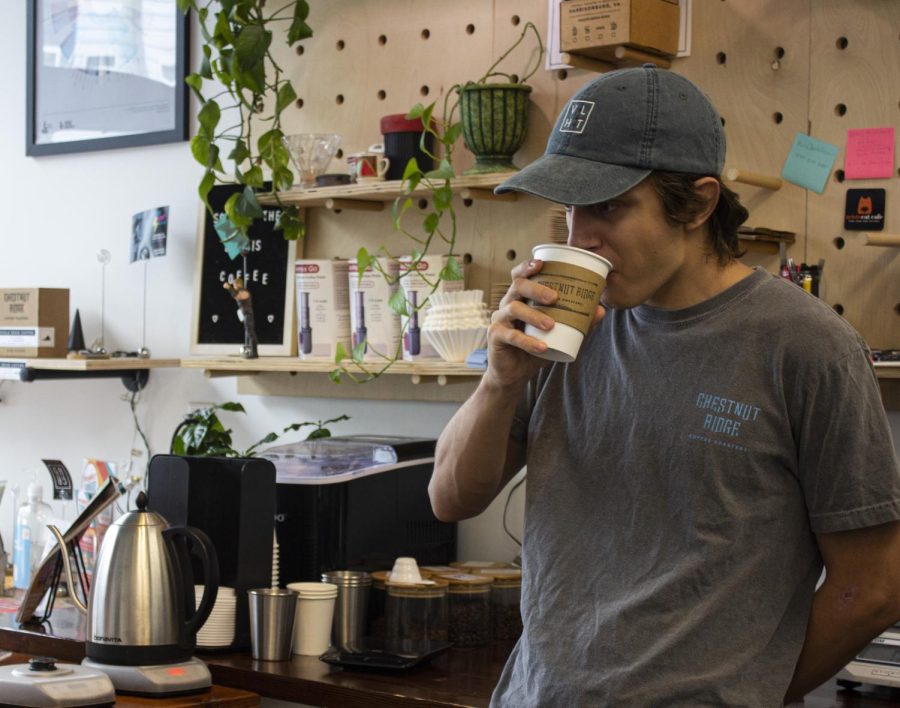All About the Beans
Employee Nick Oberholtzer drinks a pour over he just made while at work. Oberholtzer enjoys all the coffee here and its method of preparation, but his favorite being made with the Guatemalan beans. “It’s what I have at home,” Oberholtzer said. “It’s more of a medium roast, in the taste. It’s more smooth. On the notes it says it’s like a chocolate, blackberry, caramel taste to it.”
July 21, 2022
Downtown Harrisonburg offers visitors over a dozen coffee shops for their caffeine needs, but Chestnut Ridge Coffee Roasters offers a different take. For one establishment, it’s all about the beans.
“I wouldn’t say this is a coffee shop,” said Jose Thompson, co-founder and owner of Chestnut Ridge Coffee Roasters. “It’s sort of like a coffee shop, not quite because there’s mostly roasting.”
“We’re roasters first. This is kind of like a tasting room for what we roast, so it’s not a full-scale cafe or coffee shop,” said David Frazier, fellow co-founder and owner of Chestnut Ridge Coffee Roasters, pointing at a small cart with pour over stations. “We don’t have someone over here studying or enjoying a latte or bottomless cup. We don’t have the space for it.”
The centerpiece of the business is the machine that makes Chestnut Ridge Coffee Roaster’s operation possible: the roaster.
“I’m going to say it’s the best of the best, as far as roasting manufacturers go. This is one of their smaller, if not their smallest, but their smaller end roasters. You can do up to a 26 pound batch at a time. Roasting coffee is relatively quick. Everyone thinks like, ‘Oh, slow roasted’ – they’re thinking it takes three hours or something,” Frazier said. “Anywhere from 10 to 15 minutes is a typical roasting cycle so 20 pounds a cycle in a couple hours you can put a lot of coffee out.”
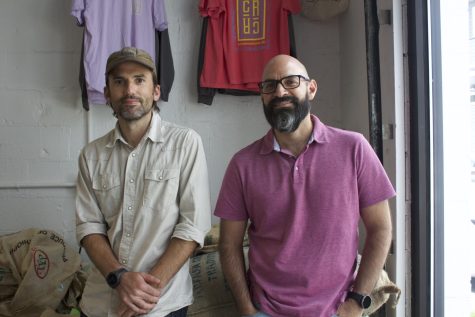
Maximizing production is crucial since Chestnut Ridge Coffee Roasters offers seven distinct flavors of coffee, each being imported from a different country: Colombia, Ethiopia, Costa Rica, Guatemala, El Salvador and Indonesia.
“The flavors of the coffee are inherently in that origin of coffee. One of the things that Jose and I had to do with the business was showcase different origins, countries that produce coffee and how that coffee should taste,” Frazier said. “But it’s also kind of out of respect for the farmers and producers that work so hard to get that coffee to us. They would want their coffee to be showcased.”
The owners say Ethiopian coffee has a “pineapple tartness.” Meanwhile, Guatemalan coffee combines chocolate and caramel. Each new batch of Ethiopian or Guatemalan coffee has different aspects to it, as they come from different farms throughout their respective countries.
They also offer an oat milk cold brew, made from El Salvadoran beans, that is smooth and creamy while still expressing a rich and strong aftertaste.
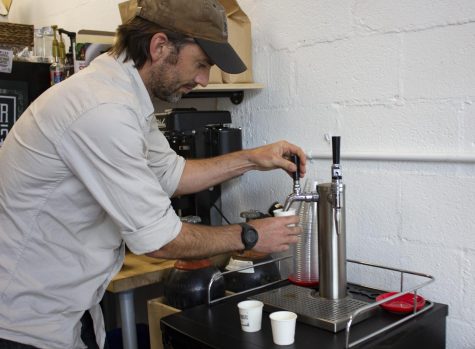
(Danielle Scott)
“It takes a couple batches for us to really dial in and figure out how we want the coffee to taste,” Frazier said. “You can bring out a whole spectrum of flavors and nuances with coffee.”
This knowledge is something Thompson and Frazier never thought they would need. The two never planned on being roasters, let alone roasting together. At a young age, Thompson wasn’t really a big fan of coffee, although his family owned a coffee plantation in Honduras.
“I didn’t drink coffee very much. It’s a very social thing over there, having coffee in the afternoon. It’s not that I didn’t like it, I just never had gotten into it,” Thompson said. “It wasn’t until I was in college that I met some friends at a coffee shop and I had some coffee at night. It wasn’t pretty hard – caffeine – and I thought it was amazing. It felt like I could stay up all night and study or read or whatever it was I had to do it. That’s kind of where I got interested in coffee as potentially a business, because I had been thinking about it since college.”
Thompson wasn’t always interested in coffee, he had a lifelong passion for running. A year after he moved to America, Thompson joined a trail running club in Harrisonburg that Frazier hosted, and after being introduced by Frazier’s brother, the two immediately connected.
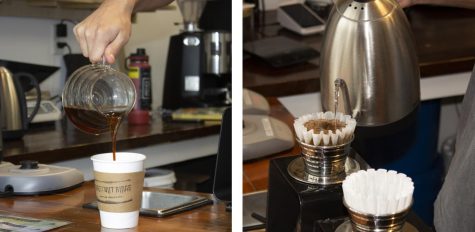
After a bit of planning, Frazier joined Thompson in this small business venture where they would tag-team on Saturdays with the sole hope of selling their roasted coffee to other businesses, as Thompson was an architect and Frazier worked at his family’s quarry by day. However, after several passersby wondered when they would open to the public, the two redesigned their operation slightly and reopened Chestnut Ridge Coffee Roasters on March 1, 2019.
“We were looking for location, trying to nail down the name, getting our business plan finalized, buying the roaster,” Frazier said. “It was a few years in the making that we finally got everything to line up with our previous spot in 2019. And we moved here in July of 2020.”
Notably, this was the same time that COVID-19 caused a global lockdown, negatively affecting most retail companies, and although Chestnut Ridge Coffee Roasters was retail-based, it only had a few non-corporate customers, giving the business an advantage.
“We just had a Rubbermaid box with a Sharpie and it said “COVINDING” machine on it, with no lock or anything on it. If you wanted coffee, come open the box, pull a box of the coffee out and Venmo Chestnut Ridge Coffee Roasters the $12 that it cost you for the 12-ounce bag,” Frazier said. “Without having to rely on folks coming in, you know. We never asked or worried about our capacity or transmission or anything like that. What we’d do is sweep [the cart outside] and Jose and I would pour coffee for anyone who wanted to try it.”
This simple exchange brought Chestnut Ridge lots of customers and a need to hire three employees, but most of its inventory still went to businesses in the area, such as Hotel Madison and Mont Pelier Restaurant. However, according to the duo, their business’s biggest customer, and connection, will always be its next door neighbor, Magpie Diner, owned by Kirsten Moore. She said her diner exclusively buys beans from Chestnut Ridge Coffee Roasters, and for good reason.
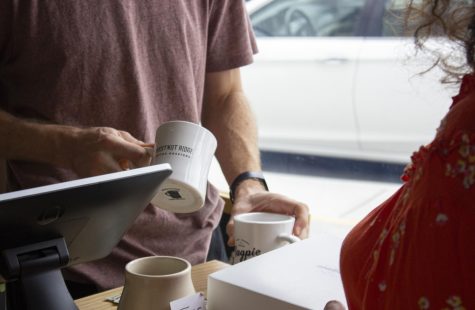
(Tyler Miller)
“People love our coffee, in fact, one of the early on people were saying, ‘this is awesome, it’s a diner but the only thing that doesn’t make it a diner is that it’s got good coffee,’” Moore said. “It’s kind of a one stop shop. People come eat lunch, they’ll grab some things from the bakery and grab some coffee beans and head home, so it’s kind of a neat synergy between all those things. I know it’s definitely giving them exposure in a way they didn’t have when they were tucked up on a side street. I’m really proud of what they’re doing and always happy to serve their coffee, it’s a good product.”


